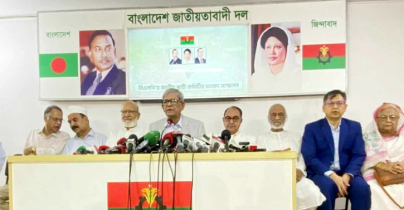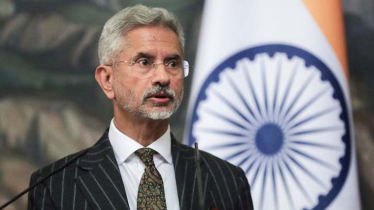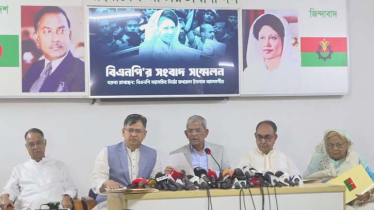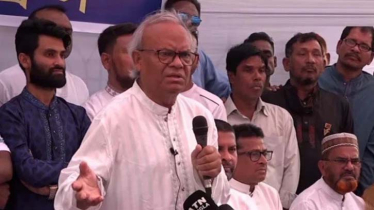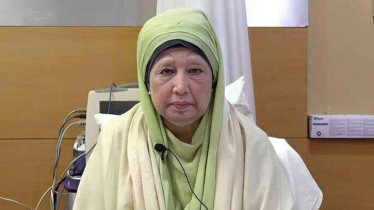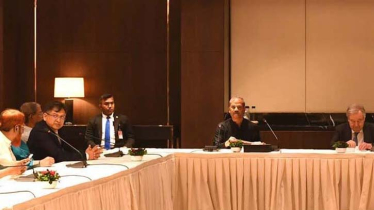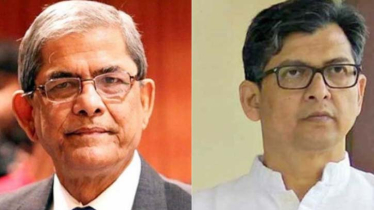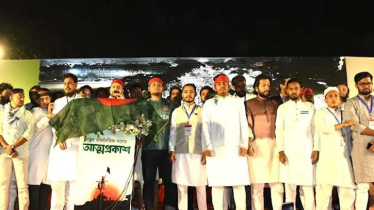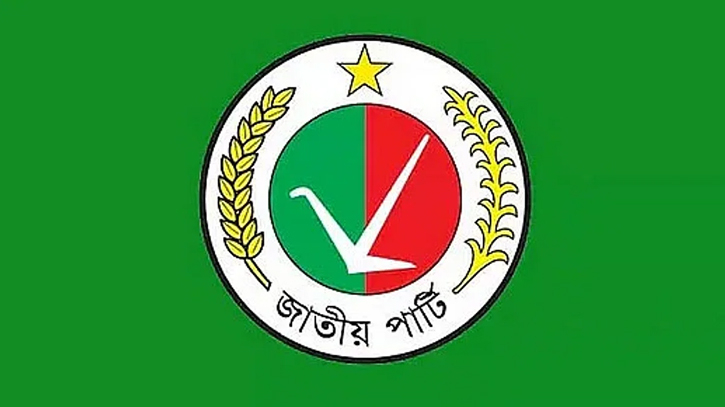
Photo: Collected
Hussain Muhammad Ershad's Jatiya Party began with prominent leaders from both the right and left wings. However, the party has suffered continuous fragmentation, leading to its current weakened state with only 11 seats in the parliament. Presently, the party lacks significant organisational activities and has minimal involvement on public issues, despite being the opposition in the parliament. Discontent with the high command has intensified among Jatiya Party leaders and activists under GM Quader.
Party leaders claim that the organisation is still functioning well, despite the departure of some members. They acknowledge a slowdown in activities since the elections but expect an increase in organisational efforts after Eid.
The Jatiya Party was founded on January 1, 1986, with leaders like Mizanur Rahman Chowdhury, Kazi Zafar Ahmed, Shah Moazzem Hossain, Barrister Maudud Ahmed, Dr. MA Matin, Sirajul Hossain Khan, and Anwar Zahid, who brought diverse political wisdom. The party included members from various backgrounds, including both right and left-leaning individuals. Most of these leaders had extensive political careers, despite criticisms about the party's rise to power.
In subsequent years, leaders like Shahidul Islam, Mustafa Jamal Haider, SMM Alam, and Monirul Haque Chowdhury emerged from student politics and eventually held leadership positions in the main Jatiya Party. However, many of these leaders have since left the party, and some have passed away, leaving the party in a state of disrepair.
Since its inception in 1986 under the leadership of Hussain Muhammad Ershad, the Jatiya Party has experienced multiple splits, totaling at least seven. Currently, apart from the main party led by GM Quader, there are three other registered factions: JP (Manju), Bangladesh Jatiya Party, and Bangladesh Jatiya Party (Matin). Additionally, there is an unregistered group known as Japa (Zafar) that remains active.
The party faced another significant upheaval on March 9, when a conference in the capital led to Rowshan Ershad assuming the role of JAPA chairman, with Kazi Mamunur Rashid appointed as general secretary and Kazi Feroz Rashid as executive chairman. This split stemmed from disputes over candidate nominations and leadership positions.
The longstanding conflict between Ershad's younger brother, GM Quader, and his wife, Rowshan Ershad, contributed to these internal divisions within the party. These internal rifts have significantly weakened the unity and coherence of the Jatiya Party over the years.
Since the last parliamentary election, Jatiya Party (JaPa) has faced significant challenges. Despite being allied with the Awami League, JaPa only secured nominations in 26 seats, of which its candidates won just 11. Subsequently, the party's condition deteriorated in local upazila elections, where it struggled as an opposition party with limited seats in parliament. In the recent elections, JaPa did not field candidates in most constituencies, highlighting its weakened state.
Moreover, JaPa has been inactive in terms of organisational activities since the parliamentary elections. There has been no effort to reform the party or devise new plans, leading to widespread dissatisfaction among its workers. Additionally, JaPa's role as an opposition party in parliament has been minimal, despite various public concerns such as rising commodity prices.
These factors have contributed to internal frustration and challenges within JaPa, reflecting its current state of disarray and diminished influence in political affairs.
Japa's organisational activities have slowed down significantly following the parliamentary and local elections, according to Haji Saifuddin Ahmed Milan, a presidium member of the party. He mentioned to The Daily Messenger that like other political parties, Japa's efforts in organising and mobilising supporters have been less active recently. However, Milan expressed optimism that organisational work would resume soon, although he cited that he could not go to party office recently to provide specific details on their plans.
Mujibul Haque Chunnu, the secretary of Japa, emphasised that the departure of leaders does not signify the end of the party. He noted that it's natural for some individuals to leave politics while others join, indicating that Japa remains resilient despite these changes. Chunnu highlighted that even as an opposition party, Japa continues to advocate for the public's interests and voices within the Parliament.
These statements underscore Japa's ongoing efforts to maintain its presence and relevance in Bangladesh's political landscape, despite facing organisational challenges and leadership transitions.
Messenger/Fameema

